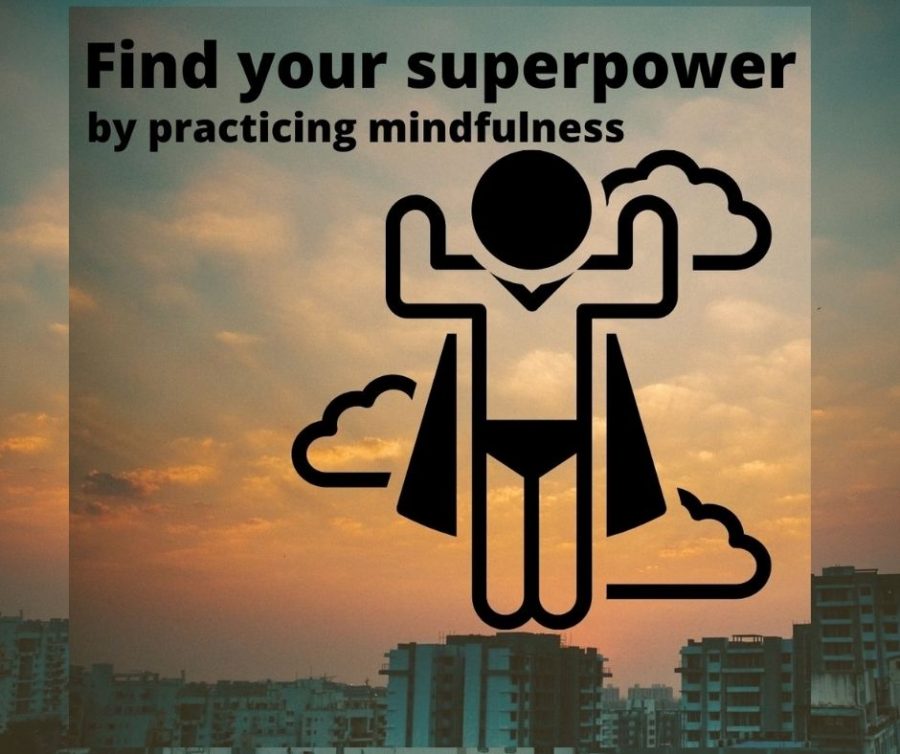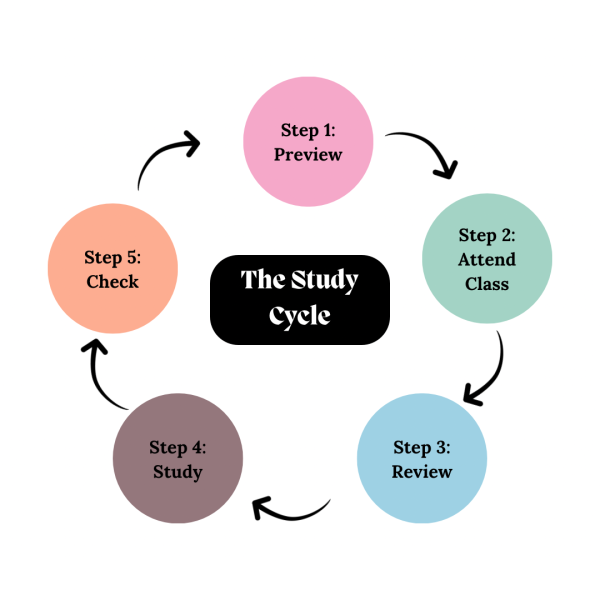Find Your Superpower With Mindfulness
How mindfulness helps with stress, anxiety, and much more
What if I told you that you had an undiscovered superpower that could help you through this semester? What if that same superpower could also improve your physical health, stress and anxiety levels, increase attention, increase relationship satisfaction, and even help your game of darts? It may sound like one of those too good to be true infomercials that come on late at night, but it’s not.
So what is this amazing superpower we all have? It is mindfulness or the moment-to-moment, non-judgmental awareness, cultivated by paying attention in a specific way. All that to say, mindfulness is meeting ourselves in the present moment with self-compassion.
When people hear the word mindfulness, they often conjure the image of serene Buddhist monks meditating. However, mindfulness is not inherently Buddhist nor is it indicative of a particular belief, culture, religious, or philosophical view. Mindfulness is more related to the human mind and how we interact with the world. We all have the capacity to increase our mindfulness and it does not require silently sitting still for hours on end.
Most of our waking time is spent in a mindless state, research has shown that 47% of the time our mind is wandering. This mindless state has been shown to predict greater unhappiness, while mindfulness has been shown to increase well-being, among many other benefits.
So how does mindfulness work? First, mindfulness brings attention to the present moment. This can come in many forms and can include, awareness of body sensations, mental images and chatter, or tuning in to what’s going on around us, i.e., sounds, smells, or taste. Mindfulness also encourages individuals to adopt an open attitude, to be curious and compassionate as they attend to their internal experiences.
Many modern practices of mindfulness also include self-compassion. Self-compassion is the practice of good will, not necessarily good feelings. When we go through difficult experiences or undergo suffering, self-compassion lets us hold ourselves with tenderness and love. Self-compassion reminds us we are imperfect humans living in a challenging world. When painful moments arise, self-compassion allows us to embrace ourselves with the comfort and care needed to bear the pain.
Everyone is capable of mindfulness, however, initially it can be challenging, effortful, or even painful. Let yourself be a slow learner, if you find yourself feeling overwhelmed, remember to STOP.
S- Stop what you’re doing, and put things down for a minute
T- Take a deep breath
O- Observe your thoughts, feelings, and emotions non-judgmentally
P- Proceed with something that will support you in the moment
Even though mindfulness can be initially challenging, it is worth the effort. Mindfulness helps develop personal insight, learning, and self-regulation that can lead to numerous benefits, including increased academic performance. You can start your mindfulness practice with just a few minutes each day. There are numerous mindfulness activities online, and WTAMU has several mindfulness apps, listed on its student support page.
This semester I will be publishing different mindfulness activities for the prairie. I invite and challenge you to join me in these exercises. This month is a brief, three minute body scan, all you need is a quiet, comfortable place to sit and an open mind.
If you need additional support this semester, the Student Counseling Center is here to help with confidential counseling by licensed professionals. Fees are included in your tuition so there are no additional charges. Call 806-651-2340 or stop by CC 116 to make an appointment.











